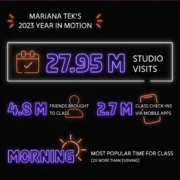WNBA’s Connecticut Sun, LumosTech Team Up To Optimize Athlete Sleep

The Lumos Smart Sleep Mask uses light therapy to enhance sleep and decrease jet lag, the company says
LumosTech, a sleep technology company, has formed a strategic partnership with the Connecticut Sun of the WNBA for the 2023 season designed to change how coaches and support staff use wellness technology to enhance athletic performance.
By incorporating LumosTech sleep masks into the routines of Connecticut Sun players, the partnership will explore how advanced sleep technology can impact performance in professional sports.
Based on research conducted by Stanford University and backed by NASA, the Lumos Smart Sleep Mask can enhance sleep routines using light therapy, the company says.
The mask is equipped with LED bulbs and enables users to regulate their internal circadian rhythms, or the body’s “internal clock.” By employing individualized light therapy programs, the mask can address specific needs, thereby mitigating disruptions in the sleep cycle and enhancing overall performance and wellness. The mask can also combat jet lag, a common issue faced by athletes and teams traveling across different time zones.
“(The WNBA) has the most intense travel schedules of all major sports,” said Dr. Biquan Luo, founder and CEO of LumosTech. “After introducing our product to the WNBA training staff at their annual conference, it became clear that we had a shared vision of using Lumos to further boost athletic and cognitive performance for the CT Sun.”

For professional athletes, schedules often involve rapid turnarounds and transitions between time zones, which can have a large impact on both physical and mental well-being.
“There are instances when we are playing a game on the east coast and 36 hours later, we’re in a different city on the west coast,” said Nicole Alexander, head athletic trainer for the Connecticut Sun. “The Lumos sleep mask has changed the way I travel and helps my body prepare for the next time zone.”
“The mask allows (athletes) to alleviate sleep cycle disruptions that occur with travel, and in turn, enhance their performance and wellness,” noted Kyle Pfaffenbach, a performance nutritionist affiliated with LumosTech. “This really inspired us to start looking deeper into the unmet needs of sleep that come as a result of demanding travel schedules and how it impacts performance optimization in professional athletes.”
Pfaffenbach noted that over the past few years, “there has been an increase in sleep science research, and now we need ways to apply this information for athletes, military personnel, and folks interested in performing at their best.”



